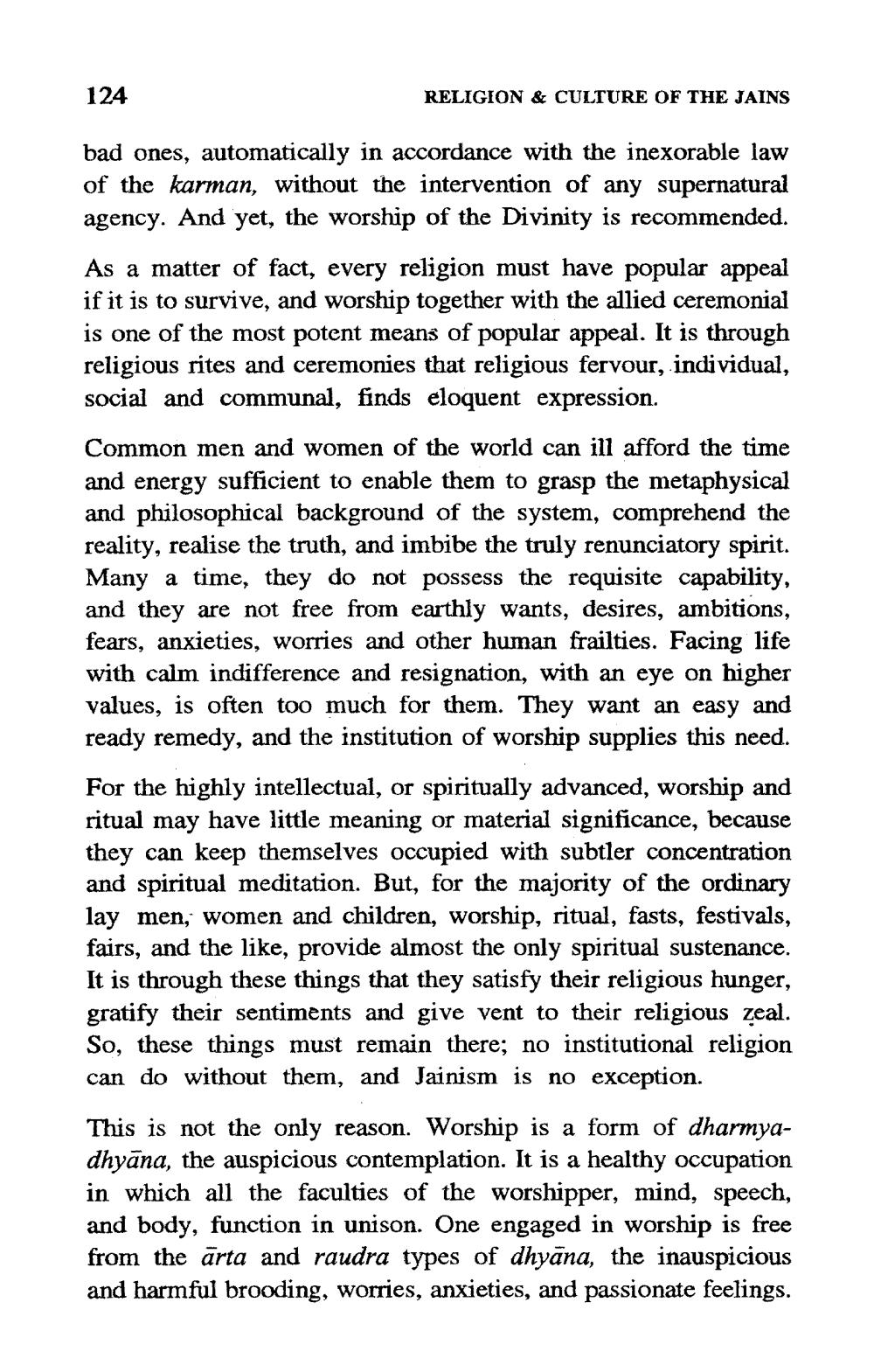________________
124
RELIGION & CULTURE OF THE JAINS
bad ones, automatically in accordance with the inexorable law of the karman, without the intervention of any supernatural agency. And yet, the worship of the Divinity is recommended. As a matter of fact, every religion must have popular appeal if it is to survive, and worship together with the allied ceremonial is one of the most potent means of popular appeal. It is through religious rites and ceremonies that religious fervour, individual, social and communal, finds eloquent expression. Common men and women of the world can ill afford the time and energy sufficient to enable them to grasp the metaphysical and philosophical background of the system, comprehend the reality, realise the truth, and imbibe the truly renunciatory spirit. Many a time, they do not possess the requisite capability, and they are not free from earthly wants, desires, ambitions, fears, anxieties, worries and other human frailties. Facing life with calm indifference and resignation, with an eye on higher values, is often too much for them. They want an easy and ready remedy, and the institution of worship supplies this need. For the highly intellectual, or spiritually advanced, worship and ritual may have little meaning or material significance, because they can keep themselves occupied with subtler concentration and spiritual meditation. But, for the majority of the ordinary lay men, women and children, worship, ritual, fasts, festivals, fairs, and the like, provide almost the only spiritual sustenance. It is through these things that they satisfy their religious hunger, gratify their sentiments and give vent to their religious zeal. So, these things must remain there; no institutional religion can do without them, and Jainism is no exception.
This is not the only reason. Worship is a form of dharmyadhyāna, the auspicious contemplation. It is a healthy occupation in which all the faculties of the worshipper, mind, speech, and body, function in unison. One engaged in worship is free from the ārta and raudra types of dhyāna, the inauspicious and harmful brooding, worries, anxieties, and passionate feelings.




